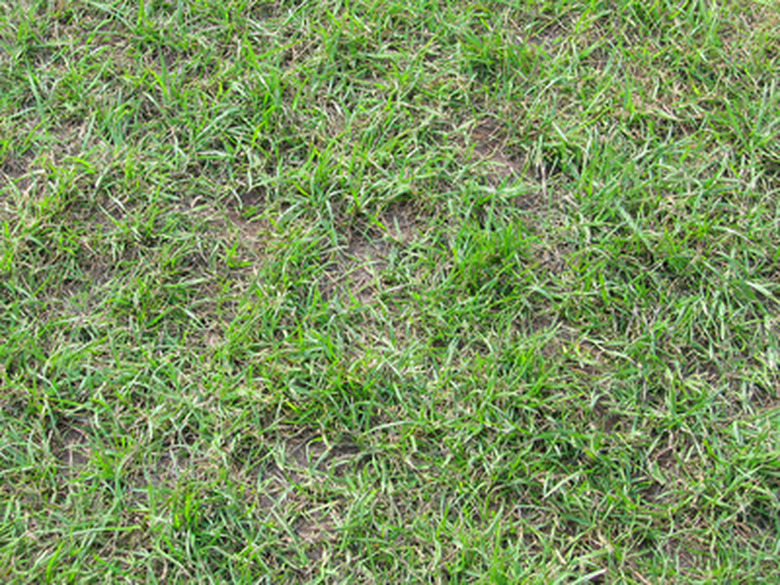Common Bermuda Grass Problems
Bermuda grass (C. dactylon (L.) Pers.) is a perennial sod grass common in areas of high traffic as an attractive groundcover. Bermuda grass grows well in many climates, making it an ideal choice for sports' fields and lawns. This grass provides effective erosion control along highways and drainage ditches. This warm season grass thrives in climates with warm summers and mild winters. Although Bermuda grass establishes quickly and grows vigorously under ideal circumstances, certain conditions adversely affect this type of grass.
Shade
Bermuda grass requires adequate amounts of sunlight. Even moderately shaded conditions pose problems for Bermuda grass. This grass develops weak rhizomes and narrow leaves in shady areas, creating a sparse, unhealthy lawn. Overhanging trees, as well as nearby structures, often cause areas of damaged grass in Bermuda lawns.
- Bermuda grass (C. dactylon (L.) Pers.)
- Although Bermuda grass establishes quickly and grows vigorously under ideal circumstances, certain conditions adversely affect this type of grass.
Arid Climates
Bermuda grass grows naturally in locations that receive between 25 and 100 inches of rainfall per year. This grass easily establishes along riverbanks and streams in arid climates, but suffers in areas with insufficient moisture. Supplemental watering in arid climates encourages healthy growth and thick turf in Bermuda lawns. This grass requires additional water in areas that experience less than 20 inches of rainfall per year.
Poor Drainage
Healthy Bermuda grass requires adequate soil with good drainage. Compact soil and heavy clay soil pose a problem to this type of grass. In addition to compressed soil, drainage restrictions caused by thatch build-up create unhealthy conditions for Bermuda grass. Core aeration removes thatch buildup and allows water and air penetration below the surface of the soil.
- Bermuda grass grows naturally in locations that receive between 25 and 100 inches of rainfall per year.
- This grass easily establishes along riverbanks and streams in arid climates, but suffers in areas with insufficient moisture.
Pests
Like many varieties of grass, Bermuda grass suffers from occasional pest infestations. White grubs damage grass at the roots, while many types of worms suck the juice from the stems of Bermuda grass. This type of grass requires periodic pest control for optimum health. Pesticides formulated for use on Bermuda grass effectively remove several types of worms and insects from the blades and roots.
Fungus
Several types of fungus attack Bermuda grass. Common disease organisms and spores found in Bermuda grass include brownpatch, Pythium, dollar spot and leaf spot. Chemical methods, such as the application of fungicides, effectively reduce the occurrence of these conditions.
- Like many varieties of grass, Bermuda grass suffers from occasional pest infestations.
